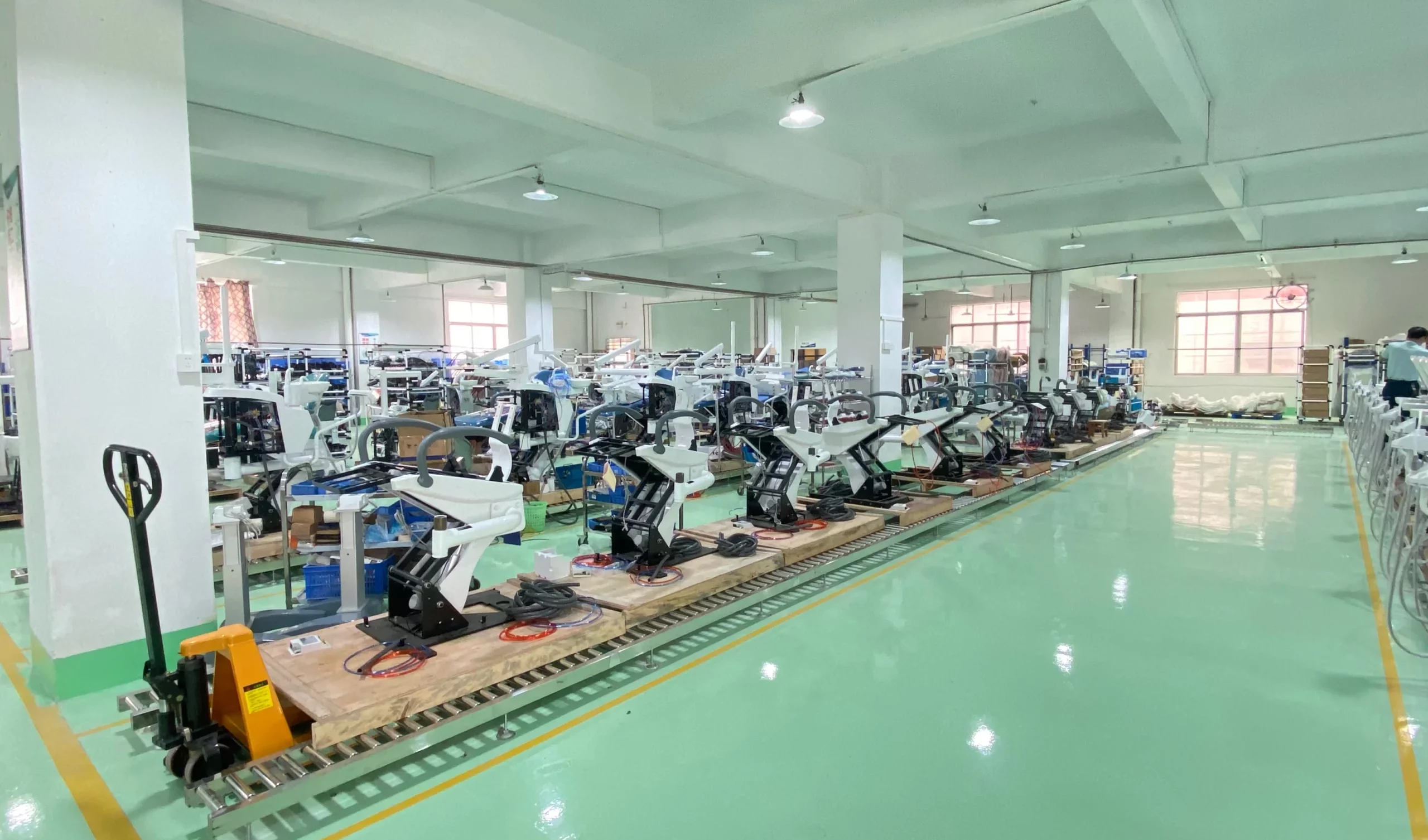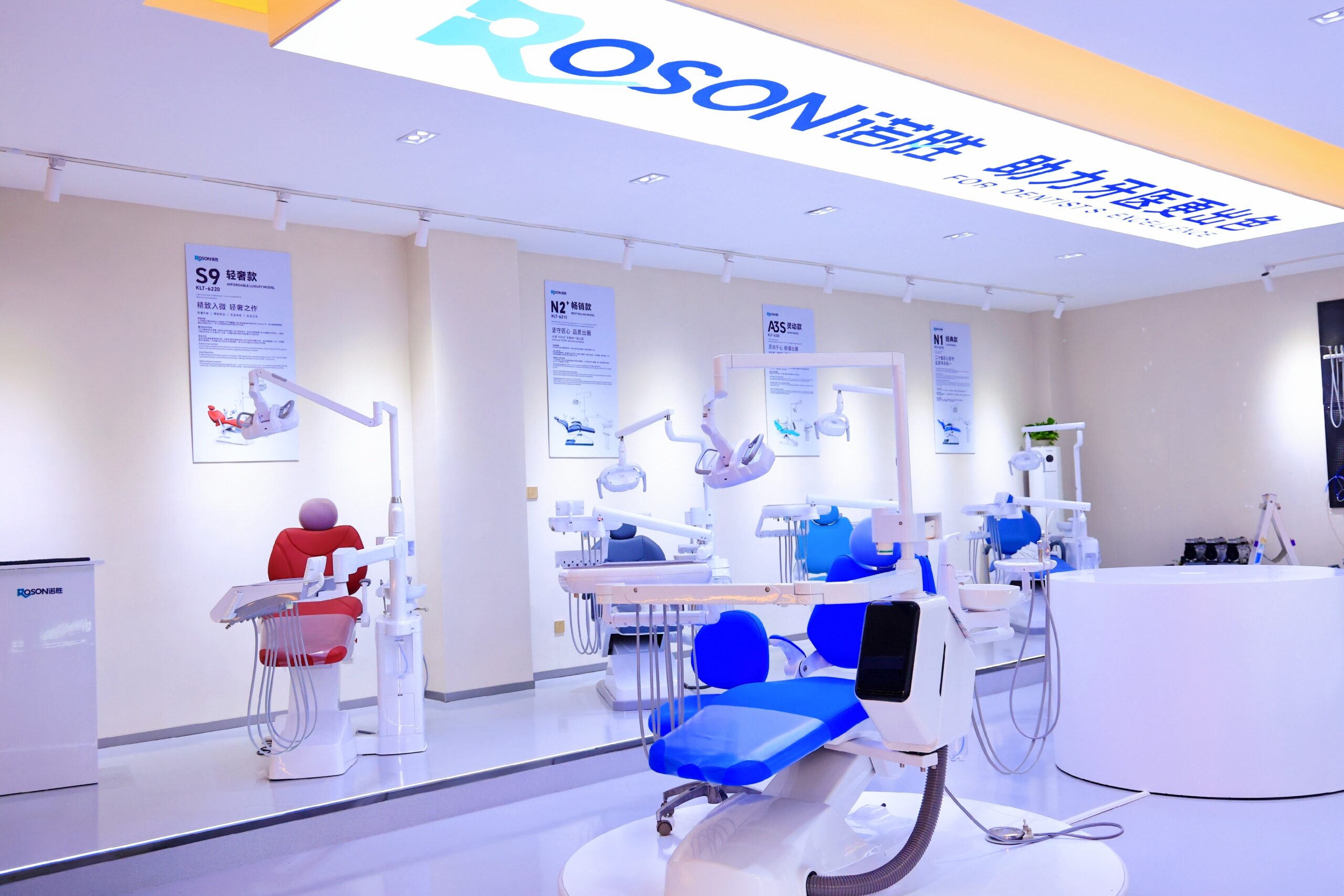Air is just as vital as electricity or water in any dental office. Whether it’s powering handpieces, drying teeth, or cleaning, dental air compressors do the behind-the-scenes heavy lifting. They’re the force behind every drill, polisher, and scaler. Without your compressor, your whole operation can grind to a halt. There is, however, one large decision you’ll have to make: Do you want an oil-free or oil-lubricated unit? It’s not so much a matter of size or cost. It’s a matter of how you operate, how clean your air must be, and how much time you have for maintenance. Here’s everything you need to know to choose the correct compressor for your rig.
Oil-Free vs Oil-Lubricated Dental Air Compressors: Key Differences in Operation
Let’s begin with how they’re produced and how they’re different.
Oil-Lubricated System
They lubricate moving motor and pump parts with dental oil. It makes them run smoothly, decreases wear, and lowers the heat generated by use. They’re generally quieter and have a longer lifespan with proper maintenance compared to oil-free models.
But oil isn’t risk-free. No matter how good the filters are, there’s always a small chance that oil mist gets into the air lines—something you don’t want anywhere near your patients or instruments.

Oil-Free Design
An oil-free air compressor is a compressor that operates without oil. It uses self-lubricating components made of carbon or Teflon to minimize wear. This renders them clean, hygienic, and low-maintenance. They are also lighter and more compact—an excellent option for mobile clinics or practices that want to go green.
Yet they also present some compromises. They are noisier, and in high-volume practice, they may deteriorate faster than their oil-lubricated counterparts.
What Are the 7 Main Differences Between Oil-Free and Oil-Lubricated Dental Air Compressors?
Here is a brief comparison to help you decide which may be a better choice for your practice:
| Feature | Oil-Free Compressor | Oil-Lubricated Compressor | Winner |
| 1. Air Purity | Provides ultra-clean air; no risk of dental oil contamination | May have oil traces if filters fail | Oil-Free |
| 2. Maintenance Needs | Low maintenance; no oil changes needed | Requires regular dental oil checks and filter replacement | Oil-Free |
| 3. Noise Level | Is noisier due to friction without oil | Has quieter operation due to internal lubrication | Oil-Lubricated |
| 4. Durability | May wear out faster with frequent use | Longer life with appropriate care | Oil-Lubricated |
| 5. Energy Efficiency | More efficient typically in small installations | Less energy efficient because of internal friction | Oil-Free |
| 6. Size and Setup | Lightweight and compact; perfect for mobile setups | Typically heavier with added oiling system | Oil-Free |
| 7. Cost Over Time | Higher up-front expense, less maintenance | Lower upfront expense but more maintenance expense over the years | Tie |
The choice between the two is based on your clinic’s requirements. If air purity and low maintenance are your priorities, an oil-free compressor is a winner. For long-term quiet operation, oil-lubricated compressors provide value. Always weigh initial costs, maintenance, and day-to-day needs in deciding on the appropriate system.
Which Dental Air Compressor Suits Your Practice Type?
Still not sure which one suits your workflow? Let’s analyze by practice type:
| Practice Type | Recommended Compressor Type | Reason |
| Single-Operator or Small Clinic | Free Air Compressor | Compact design, easy installation, low maintenance—ideal for 1–2 chair clinics |
| Pediatric or Surgical Practice | Oil-Free Compressor | Provides ultra-clean air; prevents potential dental oil contamination in sensitive cases |
| High-Volume or Multi-Chair Clinic | Oil-Lubricated Compressor | Tolerates long daily use hours; long-lasting with good maintenance |
| Mobile or Eco-Friendly Setup | Free Air Compressor | Light in weight, energy-efficient, and oil leak-free—ideal for environmentally friendly setups |
Pairing your dental air compressor with your practice type boosts efficiency, patient safety, and long-term cost management. Every setup comes with special demands, so the correct compressor selection guarantees smoother operations and less downtime—whether you’re operating a single chair or a high-traffic clinic.
How Does One Make the Smartest Decision?
If low-maintenance operation and clean air rank highest on your list of priorities, then oil-free is the way to go. It’s particularly well-suited for pediatric or surgical cases where sterility is a consideration.
However, on the other hand, if your clinic operates many chairs for extended hours daily, a properly maintained oil-lubricated model will be quieter and will have a longer life.
In any case, always seek out features that reflect your actual workload, not necessarily your budget. And when you’re ready, purchase a dental air compressor for sale with solid warranties and access to easy service.

FAQs
Q1. Are Oil-Lubricated Dental Air Compressors Safe to Use in Clinics?
Yes, they are safe—if you stay on top of regular maintenance. These compressors are equipped with filters that prevent dental oil from entering your air supply. The filters do a great job of filtering oil mist out, but they need to be inspected and replaced on time. If they break or clog, there is a danger of oil making it to your instruments or even your patient’s mouth. That’s why many clinics that place a premium on hygiene, like pediatric or surgical offices, opt for oil-free units instead. Oil-free models eliminate the risk and cut down on maintenance overall.
Q2. What is the Life Expectancy of Oil-Free Dental Air Compressors?
With proper care, most oil-free compressors will last 5 to 10 years. Because they don’t need oil changes, they are lower maintenance on a day-to-day basis. That said, they do still need to be maintained regularly—such as vent dusting, wear checks, and filter replacement as required. If your clinic is short on time or personnel for regular compressor maintenance, oil-free is generally the lower-hassle, better choice. Just remember that excessive use of a light-use oil-free model can decrease its lifespan, so select a model suitable for your average daily use.
Q3. What Should I Look for in a Dental Air Compressor for Sale?
When buying a dental air compressor for sale, always look for these primary specifications: air cleanliness rating, tank capacity, noise level in decibels (dB), and whether it has a drying system. Some very good models also have anti-microbial filters or built-in air dryers for minimizing water vapor and bacteria. If you’re inclined towards a free air compressor, ensure that it’s certified for dental application and provides constant pressure suitable for your handpiece needs. Look for after-sales services too, like warranty, availability of parts, and maintenance turnaround time.









